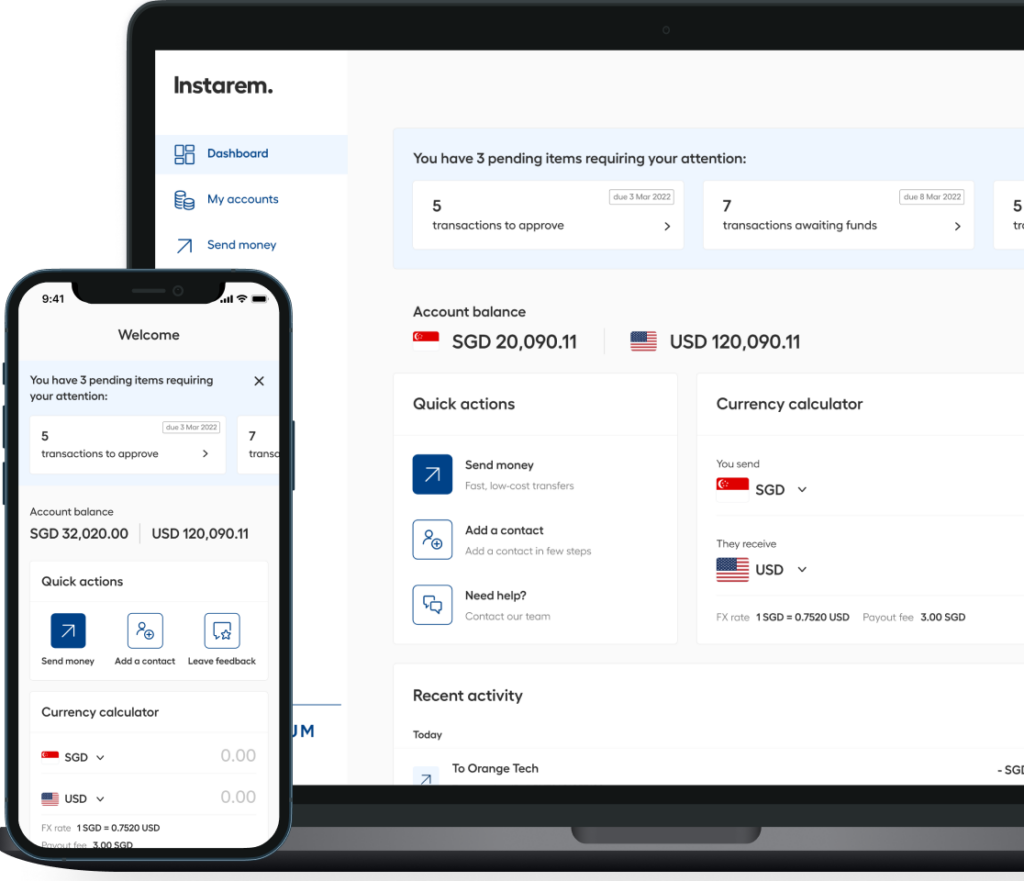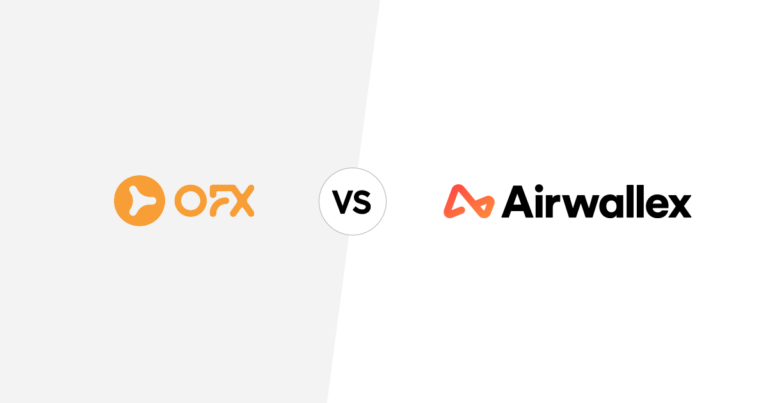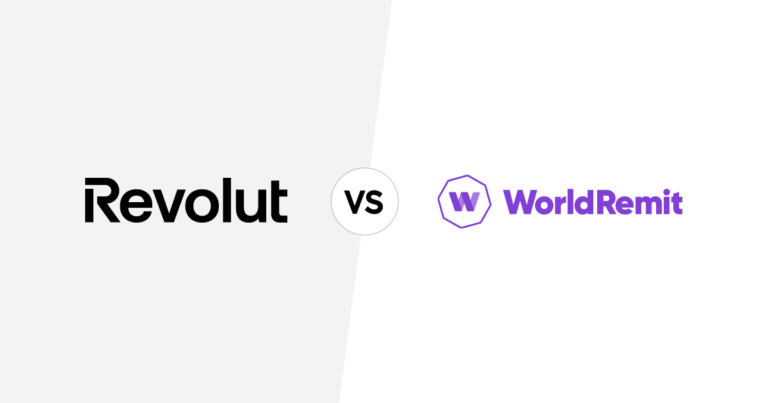A guide to Singapore business visa: Types, eligibility & application

This article covers:
Key Takeaways
There are 3 main options for business visitors to Singapore:
- Entry Visa (Single/Multiple): For short trips (30-90 days) for meetings, conferences etc. This does not guarantee entry.
- EntrePass: For entrepreneurs setting up new, innovative businesses in Singapore. This can lead to permanent residency.
- Global Investor Program (GIP) Visa: For successful business owners/investors seeking fast-track permanent residency. Requires significant investment.
Eligibility and requirements:
- Each Singapore business visa has specific requirements.
- Be aware of the limitations of each type of visa, such as restrictions on employment, educational pursuits and specific activities not considered entrepreneurial under the EntrePass scheme.
Applying for a Visa:
- Entry Visa applications can be done online (with a local sponsor) or in person at an embassy/consulate. Processing time is typically 3 business days.
- EntrePass applications are done online via the Ministry of Manpower website. The process is more complex and can take longer.
- GIP Visa applications are submitted electronically through the official GIP portal. The entire process can take 9-12 months.
Known as the Switzerland of Asia, Singapore is one of the top business hubs in the world. It has a world-class infrastructure, attractive tax benefits, a diverse business ecosystem and a stable economy—the whole nine yards.
The country also hosts global R&D labs for leading Fortune 500 companies, incubators and accelerators that support promising startups. Even some of Asia’s most successful tech startups, like Grab, Sea, Lazada and Carousell, have chosen Singapore as their regional headquarters.
So, if you’re thinking of expanding your business internationally in Singapore, you’re making a smart choice. But before you can attend meetings, conventions and any other business-related activities, you will need a Singapore business visa. How do you get one?
In this article, we’ll discuss what a Singapore business visa is, its different types, the application process and eligibility requirements. Continue reading below to learn more!
What is a Singapore Business Visa?
A Singapore business visa is a document granted to foreigners from non-visa-exempt countries such as India, Egypt, Pakistan, Bangladesh and Russia, among many others. It allows entry to the island for business activities up to 39 days per visit. The visa itself is valid for multiple entries over two years.
While the main purpose is business, you can also use this visa for personal visits to see family and friends in Singapore. Business travellers are recommended to apply for the visa at least two weeks before their intended departure.
Keep in mind that you cannot work in Singapore on a business visa. Unfortunately, it does work for work permits.
Types of Singapore Business Visa
If you’re travelling to Singapore for business, take a closer look at these entry options to help you get started.
Entry Visa – Single and Multiple Entry
An entry visa for Singapore is used for both tourism and business purposes. Once you apply, you can choose between a visa allowing multiple entries or a single entry visa during your application. The maximum length of stay on this visa varies depending on your nationality, ranging from 30 to 90 days.
It’s important to note that it is only a pre-authorisation to travel to Singapore and seek entry at the border. Meaning, that an entry visa cannot guarantee entry into the country. Immigration officials make the ultimate decision upon arrival.
Take charge of your business payments

Eligibility and Requirements
Eligibility for a Singapore entry visa depends on your nationality. Here is a complete list of nationalities requiring visas:
- Afghanistan
- Algeria
- Armenia
- Azerbaijan
- Bangladesh
- Belarus
- Democratic People’s Republic of Korea
- Egypt
- Georgia
- India
- Iran
- Iraq
- Jordan
- Kazakhstan
- Kosovo
- Kyrgyzstan
- Lebanon
- Libya
- Mali
- Moldova
- Morocco
- Nigeria
- Pakistan
- Russia
- Somalia
- South Sudan
- Sudan
- Syria
- Tajikistan
- Tunisia
- Turkmenistan
- Ukraine
- Uzbekistan
- Yemen
Entry visas are also mandatory for holders of the following travel documents:
- Refugee travel documents: Singapore needs to assess and recognise these documents before entry.
- Alien’s passports: Similar to refugee documents, these require prior assessment for entry.
- Passports issued by the Palestinian Authority.
- Temporary passports issued by the United Arab Emirates.
- Documents of Identity issued by the Hong Kong Special Administrative Region.
- Travel Permits issued by the Macao Special Administrative Region.
- PRC Travel Documents (issued by the People’s Republic of China).
Moreover, you need to have these documents ready to apply for your Singapore entry visa (business or social visit):
- Completed Form 14A: Download and fill out this form (it’s a PDF) and sign it. Make sure the information you provide matches what’s on your passport.
- Recent Passport Photo: Get a colour passport photo taken within the last three months following the photo guidelines provided by the Immigration & Checkpoints Authority (ICA):
- The dimension is 400X514 pixels for upload of photos via e-Services.
- The photo background should be white.
- The photo must not be flipped or distorted.
- Your clothing and headwear should be dark to contrast with the white background in your photo.
- Passport Copy: Make a photocopy of your passport’s biographical information page. This page must be valid for at least six months beyond your planned entry date into Singapore.
- Letter of Introduction (optional): Have a local Singapore citizen (SC) or permanent resident (PR) over 21 with a Singpass account complete a Letter of Introduction (Form V39A) for you.
For business trips, this LOI should be from someone representing a Singapore-registered business. If you can’t get an LOI from a local contact, your embassy’s letter may be accepted for both social and business visits.
You’ll need to pay a non-refundable processing fee of S$30. This is payable online using a Visa or MasterCard credit/debit card.
The processing time for your entry visa application typically takes three business days after they receive everything they need. However, it’s important to understand that some applications can take longer.
To avoid any last-minute issues, factor in processing time and potential postal delays when planning your trip itinerary concerning your intended departure date. There’s no option for expedited service, so be sure your application is complete and accurate to avoid delays or rejection.
How to Apply for an Entry Visa
There are three main ways to apply for a Singapore entry visa:
- Online: You can apply online if you have a local sponsor in Singapore who is a citizen or permanent resident with a Singpass account. They can apply for you using the e-Service on the ICA website.
- In-person: Apply directly at the nearest Singapore Overseas Mission (embassy or consulate) in your home country, or through an authorised visa agent they have listed. The specific application process may vary depending on the chosen mission, so check their website for details.
Restrictions: Activities Prohibited Under an Entry Visa
This visa does not allow travel for the following purposes:
- Working for a company or organisation in Singapore. Entry visas are only allowed for temporary social visits or business trips, and working is not permitted. If you want to work in Singapore, you’ll need to apply for a Work Permit or an Employment Pass.
- Studying. If you want to take a course or program in Singapore, you’ll need to apply for a Student’s Pass. An Entry Visa is not allowed for educational purposes.
EntrePass Scheme
The Entrepreneur Pass (EntrePass) scheme is a visa programme designed to attract foreign entrepreneurs who want to set up and run innovative businesses in Singapore. It targets innovators, business owners and investors who see Singapore as a strategic hub to access the ASEAN and wider Asian markets.
Unlike some visas, EntrePass focuses on the new company’s innovative nature and isn’t intended for entrepreneurs starting businesses in well-established industries.
One of the best things about EntrePass is that you qualify based on meeting the Ministry of Manpower’s innovation criteria, not the amount of money you invest. It also doesn’t have a salary requirement; you don’t need to show a specific monthly income to be eligible.
Eligibility and Requirements
The EntrePass is open to entrepreneurs of all nationalities. Here’s what you’ll need to qualify:
- Your Business: You must be starting or have already started a private limited company registered with the Accounting and Corporate Regulatory Authority (ACRA). The business must be new (less than 12 months old) and at least 30% owned by the EntrePass holder.
- Your Experience and Achievements: If your company is older than 12 months, the EntrePass application will be assessed based on renewal criteria. To qualify under this category, you’ll need to meet at least one of the following:
- Secured funding for a previous or current business venture.
- Received support from a government-recognised or well-respected business incubator or accelerator program.
- Founded and successfully sold a technology-based business.
- Hold intellectual property rights.
- Have an ongoing research collaboration in Singapore.
Unfortunately, businesses like coffee shops, food courts, bars, massage parlours, traditional Chinese medicine and anything that’s not innovative don’t qualify for an EntrePass.
If you think you tick all the necessary boxes, gather these documents to apply for your EntrePass:
- A copy of the biographical information page from your passport.
- Business Plan (English, 10 pages max): This should outline your:
- Product or service offering
- Market analysis
- Operational plan
- Management team’s profiles
- Supporting documents such as licensing agreements, product certificates and endorsement patents
- Documents showcasing past business activities (type and nature).
- Your curriculum vitae (CV) highlighting your professional experience and past employment testimonials (if available).
- Latest business profile or Bizfile information (if available).
- Latest financial statements (for companies registered with ACRA for more than a year).
- Other documents like shareholder certificates, incubation agreements, incorporation documents and IP registration.
How to Apply for an EntrePass
To apply for an EntrePass, a candidate should follow these steps:
- Gather your documents. Make sure you have everything you need before you begin the online application.
- Apply online. Head to the Ministry of Manpower website and complete the EntrePass application form. To submit your application, pay the S$105 processing fee using Visa, Mastercard or Amex.
- Receive an in-principle approval letter. After submitting your application, the Ministry of Manpower will review it. You’ll receive an In-Principle Approval Letter (IPA) electronically through EP Online if your application is approved.
Bear in mind that the IPA is only valid for six months. During this time, you can enter Singapore and visit the Immigration and Checkpoints Authority (ICA) to collect your EntrePass card.
- Fly to Singapore. Print a copy of your In-Principle Approval (IPA) letter. This is crucial documentation for your entry into Singapore. You should also double-check the latest travel requirements. These can change, so ensure you have everything you need for a smooth arrival process.
Upon arrival, present your printed IPA letter to the immigration officer at the point of entry. Be prepared to complete any mandatory medical examinations as required by the authorities.
- Get the EntrePass issued. You must be physically present in Singapore to receive your EntrePass card. To start the card issuance process, someone authorised to act on your behalf (you, a company representative or an employment agent) can submit the following information electronically via EP Online:
- Your passport details
- Your current Singapore immigration pass information (Short Term Visit Pass or other relevant pass)
- Your residential address in Singapore
- The preferred local address for delivery of your EntrePass card.
- Receive a notification letter after a month. With a notification letter, you can enter and leave Singapore freely while your EntrePass card is being processed. It will also inform you if you need to have your fingerprints registered and a new photo taken for the EntrePass card.
- Receive the EntrePass card. Expect your card to arrive within five business days after you complete the registration process.
If your EntrePass application is rejected, the Ministry of Manpower (MOM) will send you a rejection letter. This letter will explain the reasons behind the decision. You don’t have to panic since these issues can be resolved.
You can appeal the rejection by submitting additional documentation to support your application and strengthen your case.
Restrictions: Activities Prohibited Under EntrePass
This visa does not allow travel for the following purposes:
- Being employed by another company. The EntrePass is for running your own business, not for working as an employee for someone else.
- Engaging in work not considered entrepreneurial. The EntrePass is meant for entrepreneurs with innovative and scalable business ideas. Businesses involved in routine operations or those simply managing existing franchises may not be suitable.
Global Investor Program (GIP) Visa
While the Global Investor Program (GIP) Visa is not strictly a business visa, it is a fast track to permanent residency for successful business owners and investors. To qualify, you’ll need a history of achievement in entrepreneurship and business.
As of writing, there are three investment options under the GIP visa:
- Invest at least S$10 million of your own money into a new business you start in Singapore, or invest that amount to grow an existing business you already have there.
- Invest S$25 million in a GIP-approved fund that channels investments into companies based in Singapore.
- Set up a Singapore-based Single-Family Office with assets under management (AUM) of at least S$200 million. You must bring at least S$50 million of that money into Singapore.
Some of the sectors approved under this program are safety & security, consumer businesses, electronics, energy, engineering services, healthcare and logistics & supply chain management, to name a few.
Eligibility and Requirements
To qualify for the GIP visa, you must be:
- Established business owners. You should have at least 3 years of business experience. If you own a company, it must have a minimum annual turnover of S$200 million (average over the past 3 years) and operate in approved industries (listed in Annex B). You must also have a significant ownership stake (at least 30% for private companies).
- Next-generation business owners. The company’s annual turnover needs to be at least S$500 million (average over the past 3 years) and operate in approved industries.
Additionally, you must hold a leadership position (C-suite/Board) and have a significant ownership stake (at least 30% or be the largest shareholder).
- Founders of fast-growth companies. You should be a founder and hold a significant ownership stake. Your company must be valued at S$500 million or more, be private and operate in approved industries.
- Family office principals. You should have at least five years of experience in entrepreneurship, investment or management. At least S$200 million in net investible assets (excluding real estate) is also required.
Here are the following documents you need to submit:
- Pay a non-refundable S$10,000 application fee.
- Complete and submit Forms A, B and C electronically.
- Print and submit the following hard copies:
- Signed agreement to the GIP Terms & Conditions
- Declaration forms A & B (application and investment plan)
- Proof of application fee payment (Form CF)
- A signed statutory declaration
- Printouts of all submitted online forms
- Completed Form 4 for your Permanent Residency (PR) application
- Any additional documents specific to your chosen GIP category
Be prepared. The Singapore Economic Development Board (EDB) may require additional documents depending on your situation.
How to Apply for a Global Investor Program Visa
To apply for a GIP visa, you should complete the following steps:
- Check your eligibility. Make sure your business proposition is innovative, your plan is well-developed and you have the required funds to invest. This program has high standards and stringent requirements.
- Gather all your documents, like ID, business plans and financial statements. Double-check that everything is complete, accurate and current.
- Submit your application through the official GIP portal. Ensure all details meet the EDB’s requirements.
- If your application is accepted, prepare for an interview with EDB officials. This is your chance to showcase your business vision and commitment to Singapore’s economy.
- If approved, you’ll receive GIP status and have six months to invest in Singapore. Extensions might be possible if needed.
- Once you’ve invested, you need to provide proof like certified share certificates or bank statements. Then, you’ll need to agree to the investment’s terms and conditions.
- After verifying your investments, authorities will issue your Singapore Permanent Residency (PR) approval letter. You have 12 months to finalise your PR status.
The entire GIP process can take 9 to 12 months. But once you are granted permanent residency, you and your family will receive official blue IDs and enjoy all the perks of being a Singapore Permanent Resident, including tax breaks, education and healthcare subsidies.
Final Thoughts
Singapore offers a welcoming environment for international business ventures, with visa options to suit your needs. Whether you’re attending a conference, launching a startup or exploring business partnerships, the country makes it easy to get started.
You have the Entry Visa, EntrePass Scheme and the enticing Global Investor Program. Carefully consider your goals and business model to determine the most suitable visa option.
But what happens next? How can you manage your finances across borders once your business visa is approved? That’s where Instarem steps in. We can be your ideal first step for managing your finances as you settle your business ventures in Singapore.
- Fast Transactions: Up to 12X faster than banks. Most business transactions are completed within the same day.
- International Business Payments: Send and receive payments to your overseas partners and employees in over 160 countries, all at competitive exchange rates and low fees. You can also transfer funds securely and efficiently between your different business locations.
- No Hidden Fees: You won’t encounter any setup or subscription fees, and there are no hidden charges to catch you off guard.
Grow your business with Instarem. Sign up now and manage your business finances easier—no matter where you are.
FAQs
What visa do I need for a business trip to Singapore?
This will depend on the length of your stay and your activities. If your visit is under 30 days and you only plan on attending meetings or conferences, a regular Entry Visa might suffice.
What are the benefits of an EntrePass over a Business Visa?
An EntrePass is ideal for entrepreneurs looking to set up and run a new business in Singapore. EntrePass holders can stay in Singapore for a longer duration and potentially qualify for permanent residency. Meanwhile, business Visas are for shorter stays and don’t allow business ownership or employment in Singapore.
How can Instarem help with my business transactions in Singapore?
Instarem simplifies cross-border business transactions in Singapore. Whether you need to manage international payments, reduce the risk of currency fluctuations or optimise your cash flow, Instarem has a solution for you.




















